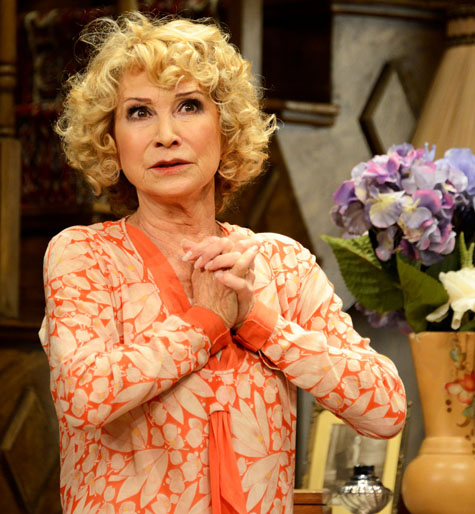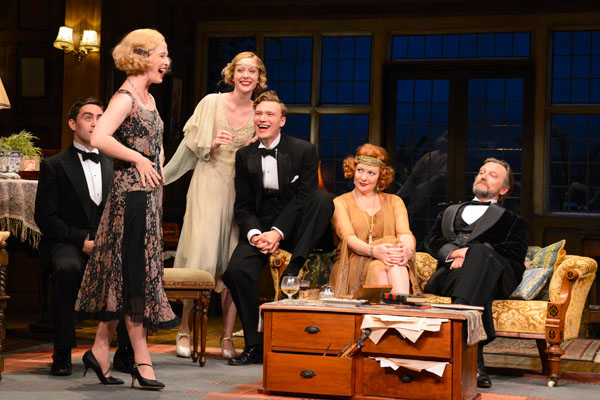Few dramatists can lay a claim to be ‘actor proof’, in the sense that the lines in their plays or their plots do all the work and that however much a company sets out to mangle the playwright’s intentions, something wonderful will shine through. Fewer still go the extra mile and demand a particular kind of approach – indeed a particular kind of delivery – in order to unlock whatever treasure may lie within. Dear Noël would not, by any stretch, fall into the former and could not, without serious harm to credibility, unblushingly demur at being placed in the latter. Where Wildean wit requires a certain languid tempo for the epigrams to hook into the mind and briefly flower, Coward bubbles along with barely the odd simile to trouble the spectator.
What both playwrights share, along with many another gifted writer, is the ability to create their own internally consistent and self-referential worlds. Moreover it is the saving grace of any production when its leading player finds themselves completely at home in the author’s little world, as does Felicity Kendal in Coward’s demi-paradise along the Thames at Cookham where recently retired West End actress, Judith Bliss, languishes in bucolic Bohemia. Out of her natural milieu and bursting under the pressure of being landed gentry she dreams of her theatrical comeback whilst indulging in some innocent fan adulation from star struck, Sandy Tyrrel (James Corrigan). Felicity Kendal also gloriously revels in the necessary style that makes this particular Coward character sparkle: expansive, highly demonstrative, changeable – knowing and oblivious in alternate breaths, self-centred and maternal in turns. Only an actress at the top of her game can hope to pull it off.
The Blisses may not be waiting for Godot, but they do wait for the next opportunity to slip into a world of detached theatricality, much to the distress of the weekend house-guests, all of whom have been invited down by the various family members in a half-hearted attempt at being ‘normal’. As foils to explore the bounds of conventionality the visitors nevertheless do their best to hold their own. Sara Stewart gives Simon’s would-be inamorata, Myra Arundel, the necessary backbone to stand up to the family whilst elegantly practicing the arts of the femme fatale on Edward Franklin’s exuberant young lover. Celeste Dodwell as the pert little flapper, Jackie Coryton, invited by a somewhat insensitive David Bliss (Simon Shepherd), has just the wide-eyed innocence to highlight the abnormality of the Blisses. Michael Simkins’ Richard Greatham is easy meat as the out of place and out-of-his-depth civil servant, invited by would-be-normal, Sorel (Alice Orr-Ewing), who brings a good measure of youthful exuberance to her sibling rivalry.
Peter McKIntosh’s set is the kind you would like to move into as it sets the action firmly in the comfortable home counties.
Lindsay Posner’s light touch direction gives the actors room to expand into their parts. At the same time he is not afraid of the silences, which often form the springboard for the rapid dialogue which is the lifeblood of the play. ★★★☆☆ Graham Wyles
Photos by Nobby Clark



